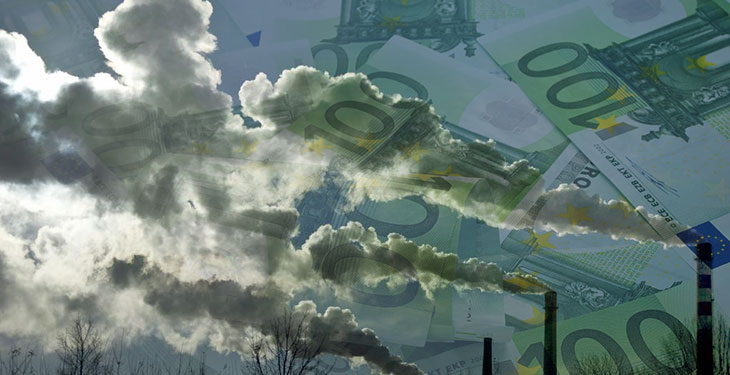A new study by the consulting firm CE Delft in Brussels, published in June 2021, shows that the energy-intensive industry in Europe benefited from around EUR 50 billion from 2008 to 2019, following the free allocation of CO2 certificates in under the EU Emissions Trading Scheme (EU ETS), according to Carbon Expert.
The report of the environmental consultancy CE Delft commissioned by Carbon Market Watch highlights the need to put an end to this market issue by reviewing EU rules on the carbon market.
The sectors that have benefited the most from free allocations are the steel, refineries, cement and petrochemical. The report covers 18 EU countries and the United Kingdom. Most profits were generated in Germany, the United Kingdom, France, Italy and Spain.
The report identified three ways in which the industry made a total profit of up to EUR 50 billion through the EU ETS Scheme from 2008 to 2019:
- The companies passed on the “costs” of the emission allowances obtained free of charge in the price of the product, paid by the final consumer. For example, in the steel sector (EUR 12-16 billion) and refineries (EUR 7-12 billion);
- Companies have been granted too many free-issue certificates to sell on the market, making a profit. For example, in the cement sector (EUR 3.1 billion) and the petrochemical sector (EUR 600 million);
- Companies bought cheaper international CER certificates (allowed until 2020) to meet their targets and were able to sell the remaining free shares for a profit on the market. For example, the steel sector (EUR 850 million), refineries (EUR 630 million) and cement (EUR 610 million).
These amounts should have been used to modernize technology to reduce CO2 emissions, but have often been redirected to companies’ budgets, including to debt payments.
